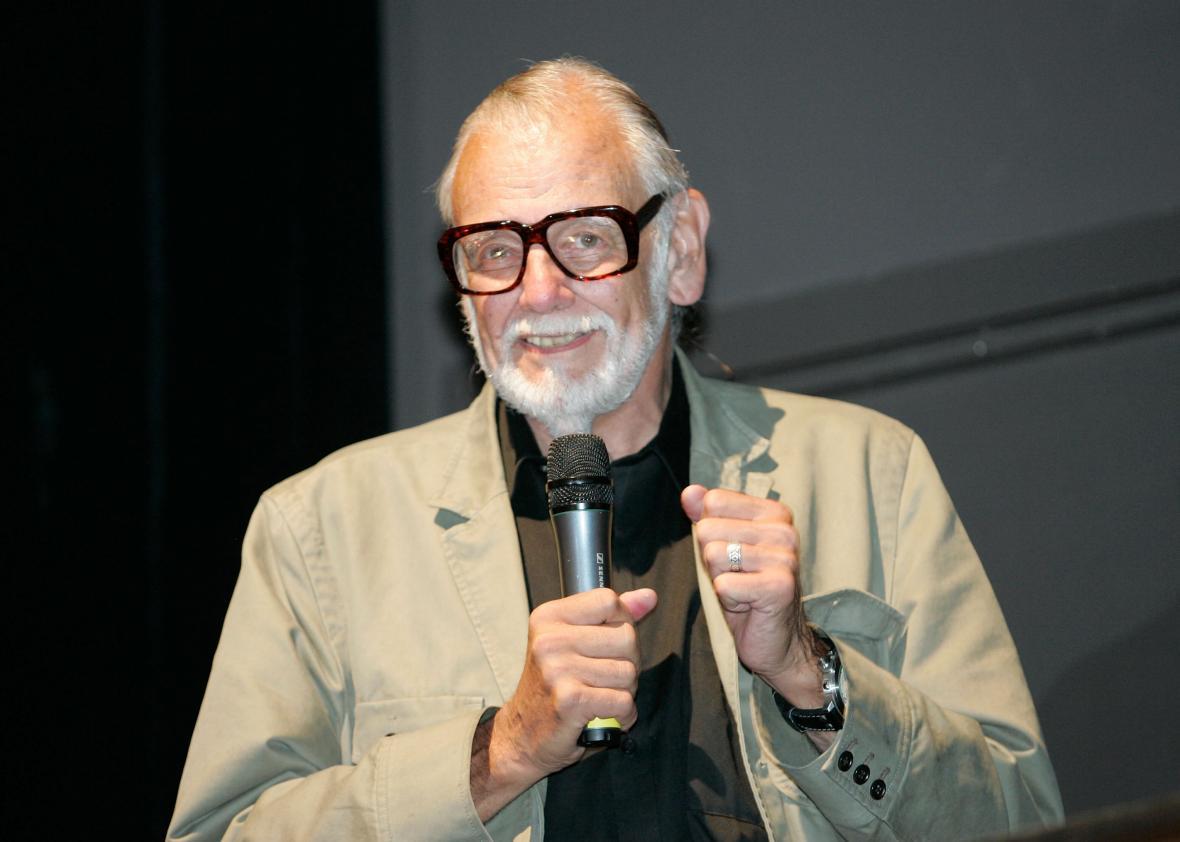George Romero, whose Night of the Living Dead changed horror movies forever, has died at the age of 77. The cause, according to a statement provided to the Los Angeles Times, was lung cancer.
Night of the Living Dead was not the first zombie movie, but it defined the subgenre as it still exists today and was the first to seize on its potential for social and political allegory. Although it was little remarked-upon at the time, the 1968 movie’s black-and-white images of a racially mixed group of strangers warding off the undead from inside a boarded-up house evoked the shots of race riots and civil unrest then dominating the evening news. As Romero drove the first finished print of the film to New York, news of Martin Luther King’s assassination came over the radio.
Romero later said he felt that Night “gets too much credit for a lot of things,” but if that movie’s social commentary was in part inadvertent, it became a more deliberate part of Romero’s later movies. Night’s sequel, 1978’s Dawn of the Dead, took on a more comic and self-aware edge, with zombies wandering through a besieged shopping mall like mindless consumers. With Vietnam-era disillusion at its peak, 1973’s The Crazies followed protestors’ urging to bring the war home, with a madness-causing virus prompting the U.S. military to, in effect, act as an occupying army within its own country.
Romero struggled to define himself outside the genre he created and become inextricably identified with: Fans swear by the modern vampire tale Martin, which Romero often named as his personal favorite, and Knightriders, about a troupe of motorcycle-riding Medieval reenactors. But the association with zombies always caught up to him, and toward the end of his career, he embraced it, adding three more movies—Land of the Dead, Diary of the Dead, and Survival of the Dead—to a series he’d theoretically closed with Day of the Dead in 1985.
Romero’s influence can be seen in the directors who’ve remade his films, such as Zack Snyder, who launched his career with a remake of Dawn of the Dead, or borrowed from them—the Planet of the Apes series’ gradual shift of narrative sympathies from humans to apes owes much to Day of the Dead’s introduction of a humanized zombie named Bub. There would be no Walking Dead without Romero’s example to follow, even if Romero didn’t find the tribute especially flattering, describing the show as “a soap opera with a zombie occasionally.”
As much as Romero has inspired and been imitated, few of the films that followed have been able to match his for raw power or enduring appeal. Some latch onto his fondness for (literally) visceral effects, like Night’s shot of a literal girl gnawing on a bloody human liver, and others onto his ability to brush up against social allegory without tethering his movies to a specific time and place—but almost none can do both at once.
